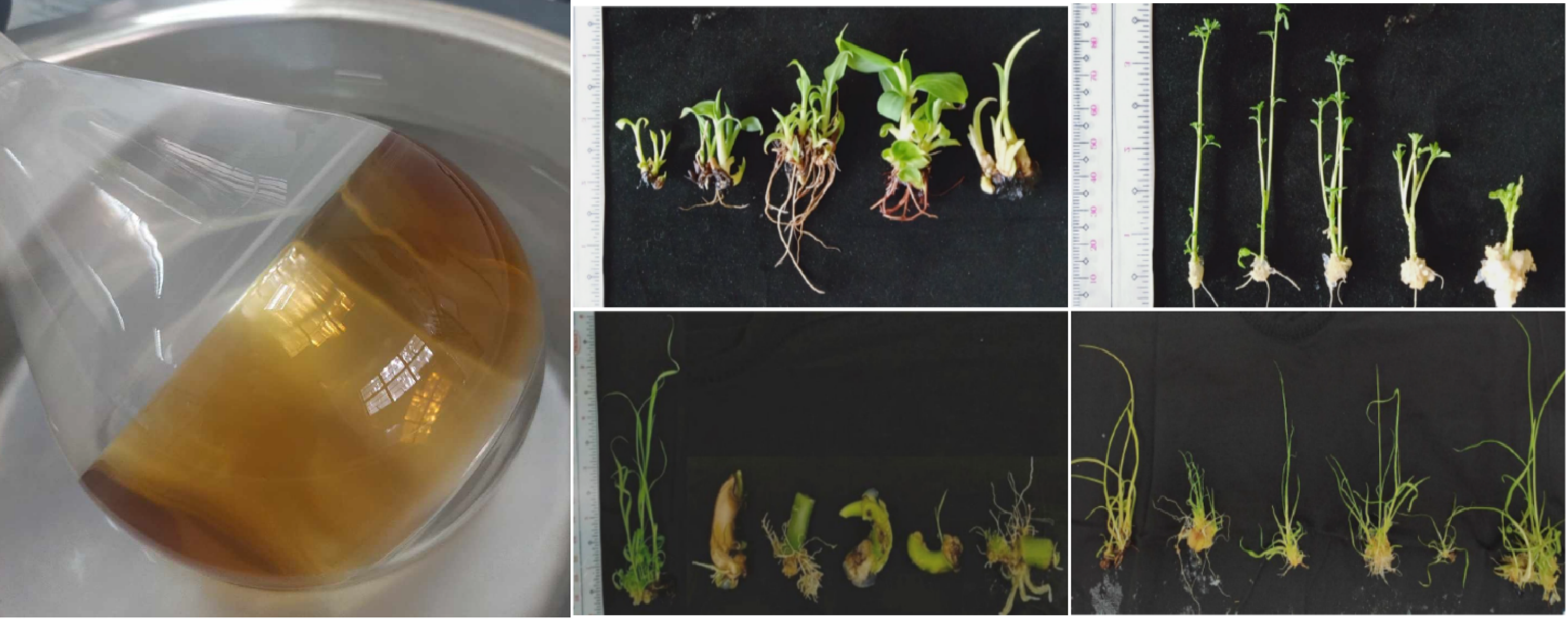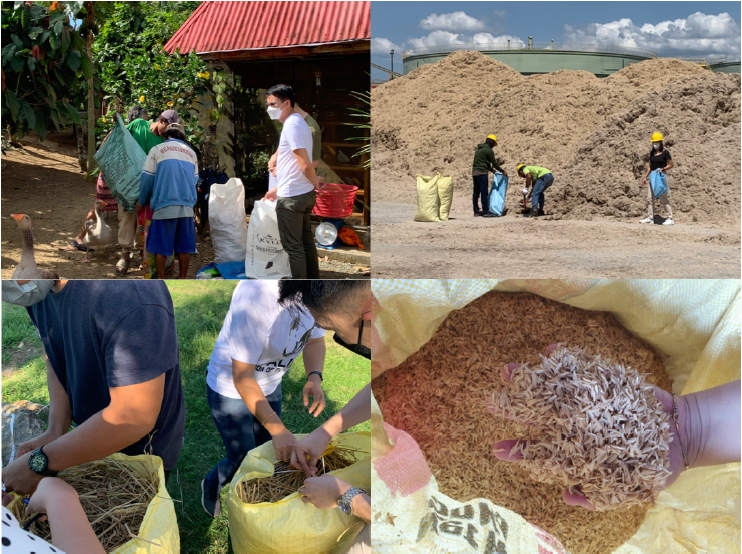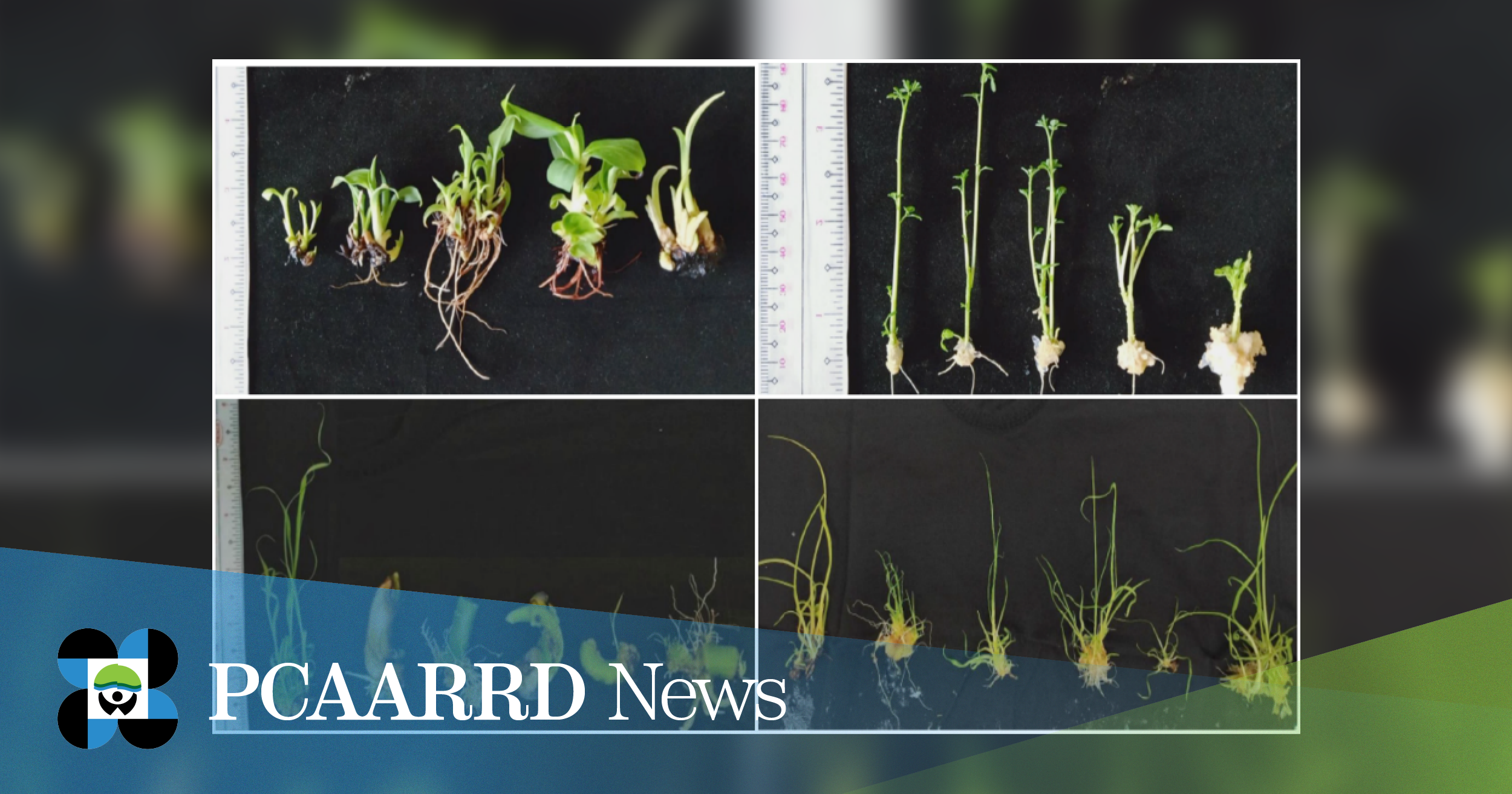
Phytohormones from waste coconut water help stimulate plant growth and development. Its application in tissue-cultured banana and sugarcane plantlets showed significant growth response.
This was the general findings of the project, “Extraction of Phytohormones from Waste Coconut Water using Biochar Derived from Agricultural Residues,” funded by the Philippine Council for Agriculture, Aquatic and Natural Resources Research and Development of the Department of Science and Technology (DOST-PCAARRD).
The project team from the University of the Philippines Los Banos (UPLB) led by Dr. Monet Concepcion Detras extracted the phytohormones from waste coconut water through the process of adsorption using biochars as adsorbents. Likewise, it uses a pilot-scale adsorption equipment with a solvent recovery system designed by the project team.

Collection of agricultural residues from different sampling sites in Region IV-A. (Image credit: UPLB)
In a project terminal review organized by the Agricultural Resources Management Research Division (ARMRD) of DOST-PCAARRD, Detras explained that waste residues such as rice straws, bamboo, banana peel, calabash husk, durian shell, sugarcane bagasse, coffee husk, and cacao pod husk, were converted into activated biochar. Experiments on these biochars showed their potential, at varying capacities, as adsorbents for the extraction of phytohormones from waste coconut water.
Patent application for the UPLB technology (Semi-Pilot Scale Column) and product (Cocoboost, the phytohormone from waste coconut water) is ongoing.
Dr. Juanito T. Batalon, DOST-PCAARRD Deputy Executive Director for Research and Development and representatives from the Council’s Institution Development Division (IDD), Technology Transfer and Promotion Division (TTPD), Socio-Economic Research Division (SERD), and Applied Communication Division (ACD) attended the terminal review.

